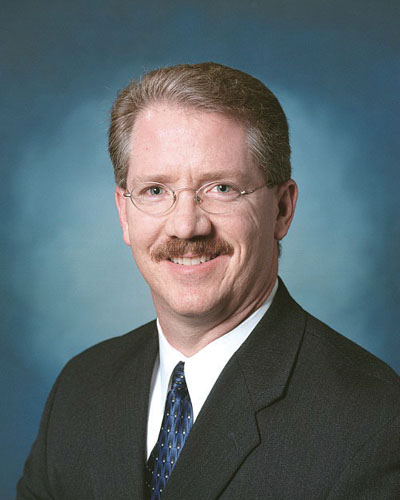|
 |
|
Chris Bagby
Click here
to see full sized version. |
How good are a roomful of experienced civil litigators at
predicting how a jury will decide a negligence case? Not very.
At least if the results of the experiment conducted by The
Advocates’ Society at its annual forum – “Tricks of the Trade
2008: Practical Strategies for Winning Jury Trials” – are
anything to go on.
Fifty lawyers in the audience were handed electronic
polling devices and asked to vote on how they thought the jury
would rule in a mock trial, expertly argued by two legendary
litigators, Barry Percival and Martin Wunder. When the votes
were tabulated, 72 per cent thought that the jury would find
the defendant was negligent. The jury’s verdict? Not liable.
Lawyers are not mind readers. But now lawyers have access
to a handful of online mock jury services in the U.S., which
enable them to peer inside the heads of mock jurors and see
the strengths and weaknesses of their case from the jury’s
perspective. The Lawyers Weekly spoke with Texas
attorney Chris Bagby, who founded eJury in 1999, the leader in
online mock jury services.
Watching a reenactment of a criminal trial on the CBS show
48 Hours Mystery one evening almost a decade ago, Bagby was
struck by inspiration. “The show had live Internet voting,
where the TV audience could vote guilty or not guilty,” Bagby
recalls. “It gave me the idea that we could do the same
thing.”
Although live mock jury trial services already existed,
eJury offered several advantages over its off-line
competitors.
“The number one advantage is the cost. I think our average
price last year was about $1,500, compared to the average
price for a live mock jury at $30,000 to $40,000,” Bagby says.
“The second advantage is the sheer number of people we can
get. In most live mock juries they will use 12 or maybe 15
jurors, where we use a minimum of 50 on every case, and on
some cases we’ve been asked to provide a hundred jurors and in
two studies we’ve provided a thousand jurors.”
Online mock juries do have some drawbacks though. “The
disadvantage of eJury is what I would call the ‘tears
from the witness stand phenomena.’ Our jurors don’t have the
face-to-face interaction with the parties. If someone is
crying on the witness stand it has no effect on our jurors,”
Bagby concedes.
The process for holding a mock jury online is quite simple
and fast according to Bagby who had three cases going on
concurrently that very morning. “The attorney sends us the
case facts, from both the plaintiff’s and the defendant’s
perspectives, the questions they are planning on using when
they go to trial and what we call ‘personal questions,’ i.e.
what facts did you think were most important,” Bagby explains.
He adds that sometimes video and photo evidence is also
included.
The process for holding an online jury involves the
following steps: First, the client’s case is posted online at
eJury’s website. Second, eJury searches its data base to find
a pool of 150 jurors located in the county and ensures that
the group is demographically balanced in terms of gender, age,
race and other criteria. Third, potential jurors are e-mailed.
Fourth, jurors log on to the site and view the case material
and answer the questionnaires and render their verdicts. It
can take a juror anywhere from 20 minutes to two hours to
complete a case and they are paid around $5 to $10. Once, 50
jurors have provided their responses, the case automatically
drops off. Turnaround for a case takes anywhere between three
days to a week.
“We posted a case yesterday (Thursday) and we ought to be
sending the results Monday morning,” Bagby says.
The firm has run mock juries for cases ranging from simple
car wreck disputes to complicated medical malpractice suits.
Feedback which lawyers receive includes: statistical data on
how jurors voted, responses to personal questions on how
jurors arrived at their decisions and estimates on damages
that the jurors would award the plaintiff. The feedback can be
used for case evaluation, trial preparation and settlement
purposes.
“With all the feedback we give our clients, in almost every
case we’ve ever done, the attorney has said to themselves,
‘man, I didn’t think about this or that.’ It just comes from
reading what 50 people think about the case,” Bagby
says.
In the past eight years eJury has run over 500 cases in 38
states across the U.S. and Bagby has considered extending
services to Canada.
|